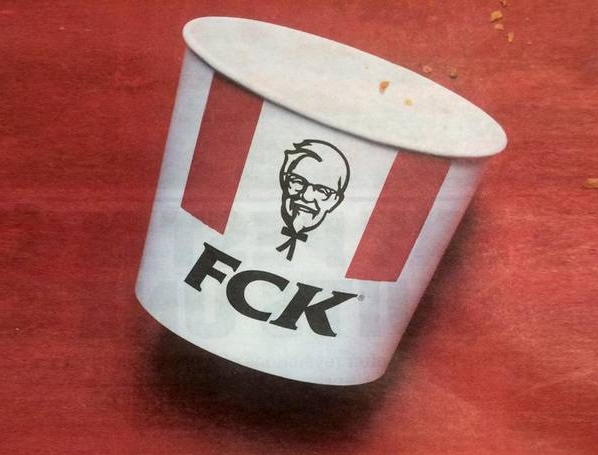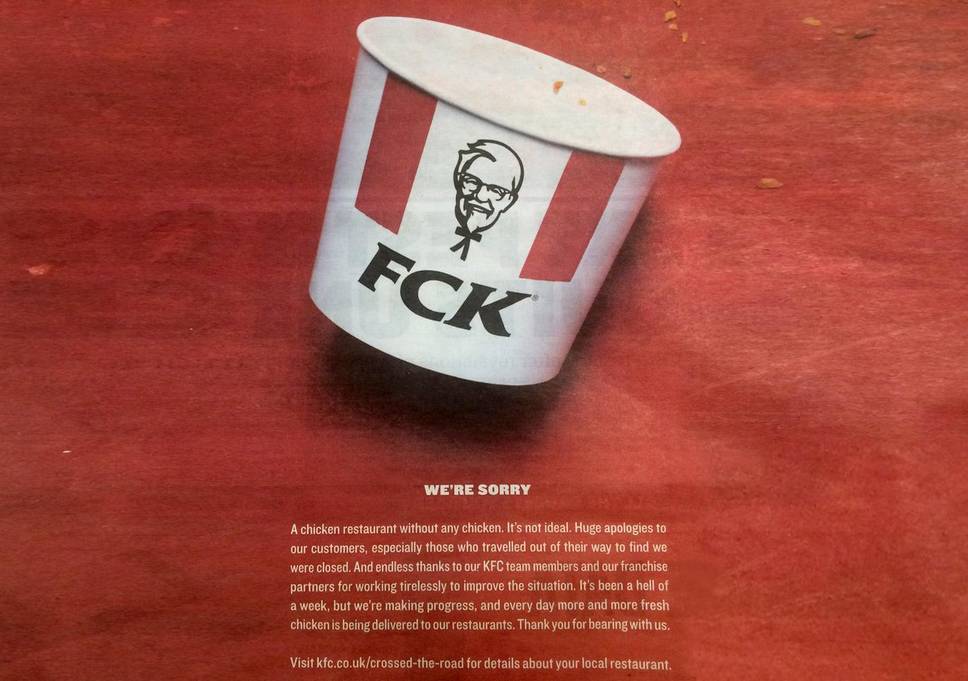A Kentucky Fried Apology


Have you ever thought about how your brand would react if something went wrong? The reality is, it's not a question of if, but a matter of when. And, any effective crisis communications response includes a thoughtful apology.
Well, in February, bad news hit KFC as hundreds of UK-based franchises closed their doors when they ran out of their main ingredient: chicken. The apology was an instant hit among consumers, the media, and professional marketers, and it's easy to see why:
The ad cleverly scrambles the company's moniker, "KFC," and reads:
We're sorry.
A chicken restaurant without any chicken. It's not ideal. Huge apologies to our customers, especially those who travelled out of their way to find we were closed. And endless thanks to our KFC team members and our franchise partners for working tirelessly to improve the situation. It's been a hell of a week, but we're making progress, and every day more and more fresh chicken is being delivered to our restaurants. Thank you for bearing with us.
Behind the creativity and humor are the foundational elements of any good apology:
The Admission
"A chicken restaurant without chicken. It's not ideal." KFC's apology began by addressing the elephant in the room, and, in this case, it works well. It's funny and direct, and it doesn't shy away from what happened. Realistically, we all know that as far as catastrophes go, running out of chicken is a minor tragedy. But, in the customer service industry, denying your consumers the brand's namesake is definitely a faux pas, and KFC admits that.
The Apology
One of the worst mistakes a brand can make is to deflect responsibility for wrongdoing on someone else, or maybe worse, back onto the person they owe the apology. This is better known as the non-apology apology ("I'm sorry you were offended"), where an individual or brand acknowledges that who they are addressing is hurt, but they don't own responsibility for the hurting. KFC doesn't do that here, they just say, "We're Sorry." Plain and simple.
The Resolution
After acknowledging the problem, customers want to know the solution. It always helps an apology when a brand not only acknowledges the problem, but addresses how they will make things right. In the case of KFC, consumers aren't interested in the details around "how" the problem will be solved. They simply want to be assured it will be fixed. If not, they will lose faith in the brand.
Next Steps
While saying "sorry" is the most important part of any apology, KFC also earns some goodwill by thanking its consumers for their patience, and its team members and their franchise owners for their hard work. This makes the consumer feel like they matter, and KFC's employees and franchisees will feel appreciated for the customer flack they may have taken during the shortage.
Saying "I'm sorry" is never easy, and admitting fault is not something that brands, or people, enjoy doing. However, KFC avoids a serious burn because the company admitted its guilt, and issued a true and genuine apology. KFC's simple, clever and memorable response to this crisis can be used as a reference for any brand's apology.
A Kentucky Fried Apology

